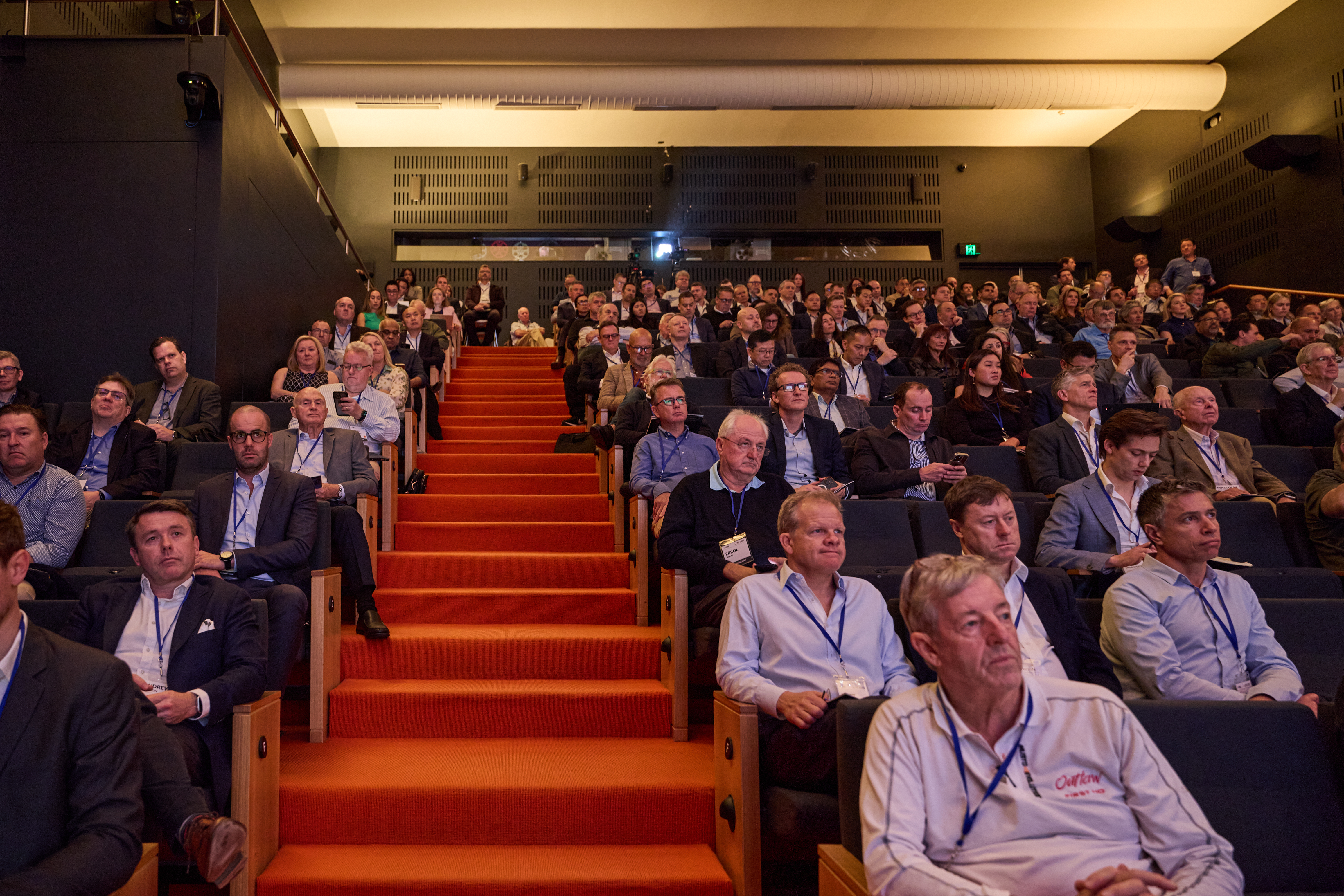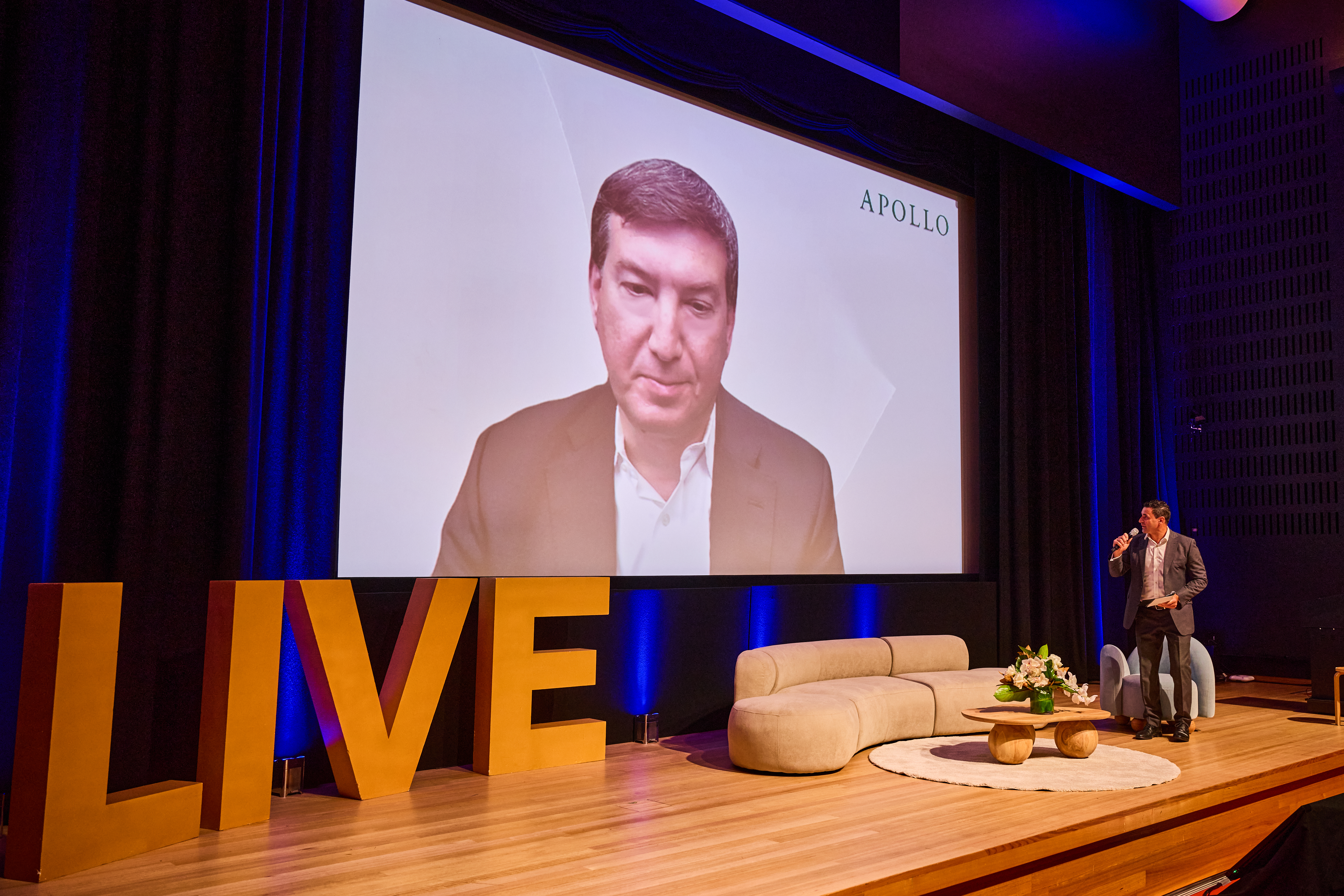5 investment themes attracting this $1 trillion firm's attention
Unless you are a purveyor of a specific niche area in global markets, chances are you may have never heard of Apollo Global Management. But Apollo is no small fish, given that at its last update, the firm manages nearly US$700 billion ($1.04 trillion) in assets across credit, private equity, real assets, and more.
Scott Kleinman, Co-President of Apollo Global Management, spoke at today's Livewire Live 2024 event on a range of topics that span from the challenges that non-Magnificent Seven public companies face to the opportunity in the energy transition to the privatisation megatrend. The last of these, Kleinman says, is an investment theme not likely to slow down or change any time soon.
"We've done a number of public to private deals over the last year because there are interesting companies that are trading at reasonable valuations that actually are tired of being public."
"The markets don't really care about a $3 billion company going public, even a great, fantastic company, you can get public, but you're not gonna get public at a great valuation... If you're prepared to go public in a mediocre valuation, you can probably get public, but most folks don't love going public in a mediocre environment. They think they bought a great company so they want to go public at a great price. I don't see that changing anytime soon. I do think the IPO environment's gonna be subdued for a while."
In this wire, we summarise the exclusive conversation Kleinman had with Livewire's James Marlay. Read on to also find out some of the other mega-themes he is watching and what Apollo is waiting for to deploy its dry powder stockpile of nearly US$70 billion.

Apollo's view of the investing cycle - and the price you pay
As a value-oriented investor, Kleinman lamented that the last 15 years have caused asset managers to be led astray from the fundamental tenet of getting involved in companies at appropriate valuations.
"It's almost quaint in this day and age, but that purchase price matters really across anything whether you're talking about a building or a piece of credit or a company," Kleinman said.
"It was very easy to forget that purchase price mattered because when the cost of capital goes to zero and stays there, the purchase price doesn't matter as much anymore because the capital markets bail you out and if the capital markets don't bail you out, then the government bailed you out."
"That was good until it wasn't eventually. Money is not free forever."
The dispersion in valuations between public and private markets
The beauty of writing headlines covering only seven super-stocks is that it's easy to write about them. The challenge, which is far less talked about, is how non-Magnificent Seven companies have been coping with the economic regime change.
"People don't talk about that. But for the average public company, it's actually not been that much fun," he said.
"The market almost doesn't care what you do. You just move with the general sentiment of the market and it's very frustrating. And, so you have a lot of companies that are looking to go private at a reasonable valuation," he added.
Lessons from past cycles
This cycle, Kleinman noted, is very unusual. The traditional economic cycle, peak to trough, generally lasts anywhere between six to eight years. But this time is different:
"We've come through a period where we had a 14-year up-cycle. We haven't even hit our down cycle yet. So we're looking at a total cycle here that might end up being 16 or 18 years," he said.
While Apollo does not see signs of a deep recession just yet, he sees some danger in inflation rearing its ugly head once again when the Federal Reserve begins to cut rates. And that, in his view, is not what is priced into markets.
"The market is geared for, I'd say, pretty good outcomes. Fundamentals are probably as good or better than people anticipate and nothing technically points to why rates are going to fall massively, other than people's desire to see them come down," Kleinman said.
Why Apollo has so much dry powder - and what it's waiting for to spend it
Data compiled by Bloomberg that the Livewire team stumbled upon recently suggests that there has been a huge growth in dry powder for the biggest private markets firms. As of the end of Q2 2024, Apollo said it had US$68 billion in dry powder - that is - the cash reserves kept on hand by a company, venture capital firm or individual to cover future obligations, purchase assets or make acquisitions.
So what is this attributable to?

The investment themes attracting Apollo's attention
Before we get into the themes themselves, Kleinman was keen to point out the overarching consequence that comes from each of these mega-themes: the money that will have to be spent to achieve these programs.
"We are in a time where companies are seeing an unprecedented need for capital," he said.
In fact, the only thing more remarkable than the amount of capital that will be spent to achieve these goals is the many avenues now available to firms for sourcing extra capital.

Now, to some of the themes Kleinman is interested in:
- "When you think about some of these things, like the digital transformation that's going on across just about every industry and the amount of capital that has to be invested, whether it's data centres or chips or the whole digitisation of the economy."
- "Decarbonisation, everywhere around the world, [will need] massive amounts of capital. This is a 30-year spend that has to happen in trillions, tens, and hundreds of trillions of dollars over the next few decades."
- "Deglobalisation is happening. In the US, we're feeling it. 40 years of moving industrial infrastructure to China has to be reversed in many industries and a lot of that has to be rebuilt," Kleinman noted.
And finally, an opportunity that hits close to home - the energy transition. But Kleinman says the way to approach investing in this space is not to back an emerging technology and hope that it works. Rather, it's about backing the proven winners who need the next leg of capital to fuel the next stage of its growth.
"Our focus has been much more on taking later-stage technology and helping that. For instance, how do you scale up a winning technology that just needs capital and has one working facility but now it needs five facilities," Kleinman said.
These themes and the mega-size of these deals were reflected in some examples Kleinman brought along. One of which involved Apollo paying US$11 billion for a 49% stake in Intel's newest chip fab facility in Ireland. Another involved the firm supplying a €1.3 billion financing facility to Air France.
"These firms don't want to do [these deals] in $20, $50 or $100 million [instalments]. They want to do it in $2 billion, $5 billion, $10 billion, and $20 billion types of transactions," he said.
Learn more
Apollo Global Management is a high-growth alternative asset manager seeking to provide its clients excess return at every point along the risk-reward spectrum from investment grade to private equity with a focus on three business strategies: equity, hybrid, and yield. Find out how Australian investors can access Apollo here.
3 topics
2 contributors mentioned


